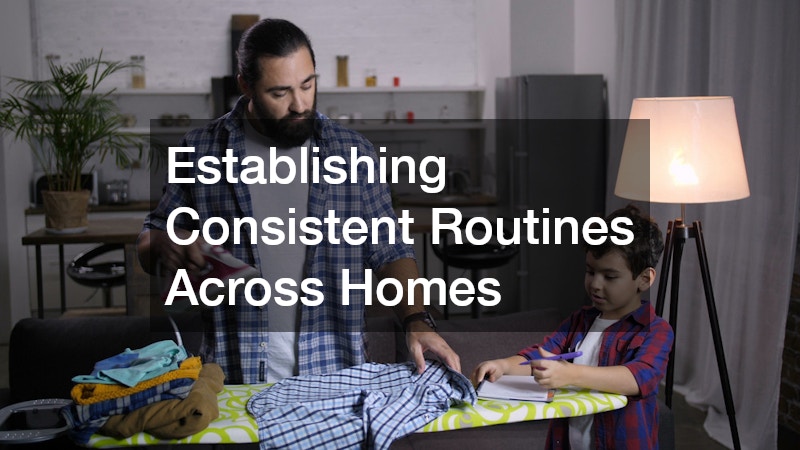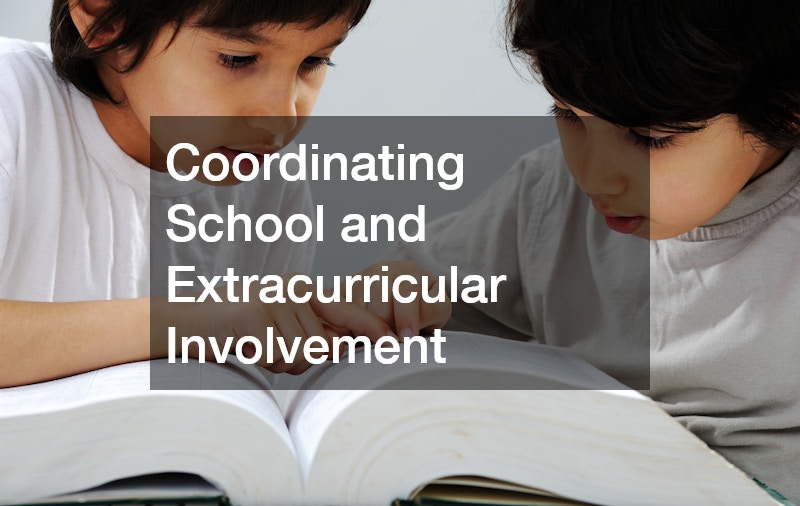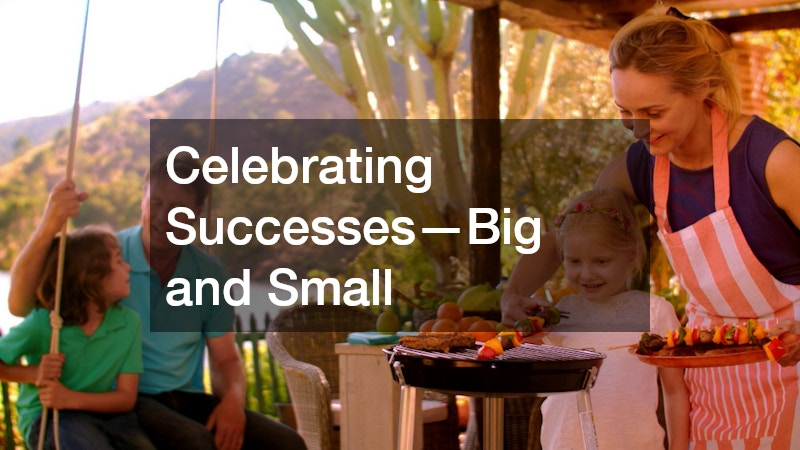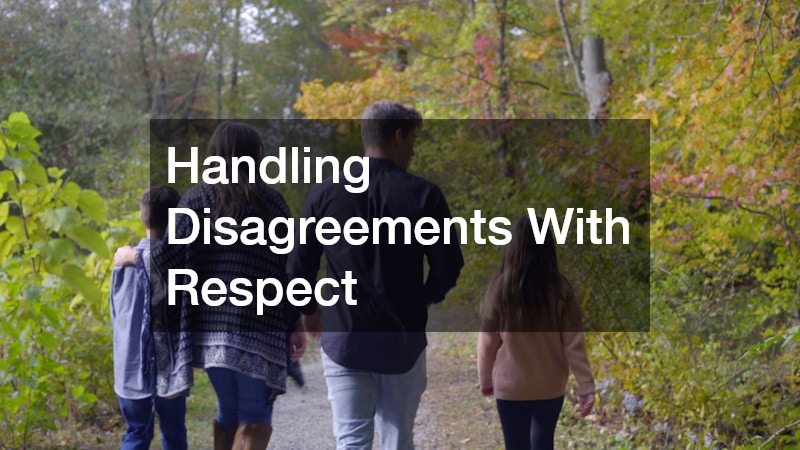Divorce is never easy, but when children are involved, it adds another layer of complexity. Co-parenting can feel overwhelming at first—balancing emotions, communication, and logistics while ensuring your kids feel loved and secure. Yet, with the right mindset, structure, and mutual respect, it’s possible to build a healthy co-parenting relationship that benefits everyone. This guide will explore practical and emotional strategies for navigating shared parenting responsibilities with grace, from setting boundaries to maintaining consistency and creating new family traditions that prioritize your children’s well-being.

Shifting From Conflict to Collaboration
One of the most important transitions after divorce is moving from a couple’s dynamic to a co-parenting partnership. This requires shifting your focus away from personal grievances and toward the shared goal of raising happy, stable children. The healthiest co-parents treat their relationship like a business partnership—communication is clear, boundaries are honored, and every decision centers around the kids’ best interests.
When emotions are high, it can help to consult with one of the best divorce attorneys who understands the importance of crafting parenting plans that minimize future conflict. A detailed agreement can set expectations for decision-making, scheduling, and communication, giving both parents a solid foundation to work from. Over time, this legal clarity helps build trust, because everyone knows where they stand.
Teaching Children Healthy Relationship Skills
One of the greatest gifts of graceful co-parenting is the example it sets for your children. Kids learn by watching—how you speak to each other, how you handle disagreements, and how you show empathy in challenging moments. Even when parents live separately, children can grow up with a healthy understanding of love, respect, and cooperation if they witness those qualities between their caregivers.
By prioritizing calm communication, accountability, and teamwork, you’re teaching your children how to manage relationships in their own futures. They’ll learn that differences don’t have to lead to disrespect and that compassion is stronger than conflict. These lessons become part of their emotional foundation, influencing how they navigate friendships, partnerships, and even parenthood later in life.
Communicating With Purpose and Patience
Successful co-parenting hinges on effective communication. Whether it’s discussing school activities or medical appointments, keeping messages focused on logistics rather than emotions is key. Avoid revisiting old arguments or using your children as messengers. Instead, choose neutral, respectful language and consider using shared calendars or parenting apps to coordinate schedules.
If finances or support become points of tension, a child support lawyer can help ensure fairness and compliance with court orders. Clear financial guidelines prevent misunderstandings and protect both parties from resentment. Remember, open and honest communication creates stability—and your children notice when both parents handle disagreements with maturity and care.

Establishing Consistent Routines Across Homes
Children thrive on predictability. When two households are involved, consistency becomes even more important. Coordinating routines for bedtime, meals, and homework can help minimize confusion and stress. This doesn’t mean everything must be identical in both homes, but major rules—like screen time limits or curfews—should align as much as possible.
A family attorney can assist in creating a structured parenting plan that outlines these shared responsibilities in detail. By clarifying expectations early, you’ll prevent unnecessary disputes later. More importantly, your kids will appreciate knowing that both parents are united in how they approach discipline and daily life.
Supporting Each Other’s Parenting Roles
Respecting your co-parent’s role is one of the cornerstones of graceful co-parenting. Even if your relationship ended badly, your children benefit when both parents are allowed to love and guide them freely. Avoid undermining each other’s authority or speaking negatively about the other parent in front of your kids. Children shouldn’t feel torn between loyalty or pressured to take sides.
In more complex cases—such as when disagreements about custody or visitation arise—a divorce lawyer can mediate discussions or request adjustments to existing agreements. Having a legal advocate ensures that decisions remain focused on your child’s best interests, not past frustrations. Over time, mutual respect between parents helps children feel more secure and confident in their family dynamic.
Creating New Family Traditions
After a divorce, family traditions often change. Holidays, birthdays, and vacations may look different than before—but they can still be meaningful and joyful. Creating new rituals helps children feel grounded in the present instead of dwelling on what’s been lost. For example, perhaps both parents take turns hosting holiday dinners or agree to celebrate birthdays together when possible.
Some families even coordinate joint Christmas photos to show their children that love and unity still exist, even if parents live apart. While this might not be possible for everyone, simple gestures like shared holiday cards or collaborative gift-giving can go a long way in fostering emotional security.

Coordinating School and Extracurricular Involvement
School events and extracurricular activities are natural touchpoints where co-parents can show unity and support. Attending parent-teacher conferences together or splitting responsibilities for school pickups demonstrates to your children that their education is a shared priority.
If your child attends daycare, consistency in pickup schedules and communication with staff is essential. Both parents should be informed about upcoming events, behavioral updates, and developmental milestones. This cooperative approach signals to your child—and their teachers—that both parents are equally invested in their growth.
Supporting Early Education Transitions
Preschool is often the first structured environment where children experience independence from home. Co-parents can make this transition smoother by maintaining open communication with teachers and ensuring routines are consistent across both households. Sharing progress reports and discussing learning goals helps both parents stay aligned in supporting early development.
If your child attends Odyssey Preschool or a similar program, take advantage of school portals and newsletters to stay informed. When both parents engage equally, children gain a sense of stability and encouragement—two vital components of early learning success.
Planning for Long-Term Education Together
Educational choices can sometimes lead to disagreements, particularly when tuition, location, or curriculum philosophies differ. However, these are opportunities to practice compromise and shared decision-making. Parents should discuss long-term academic goals early on and revisit them as their children grow.
When selecting top rated private schools or evaluating educational opportunities, both parents should attend tours and open houses if possible. Joint decision-making reinforces to your children that their education is a top priority—and it also minimizes resentment later. Even if one parent pays for tuition, involving the other in decisions fosters transparency and respect.

Celebrating Successes—Big and Small
Amid schedules, transitions, and daily challenges, it’s easy to overlook how far you’ve come as co-parents. Taking time to acknowledge small victories can go a long way in maintaining a positive dynamic. Celebrate when communication goes smoothly, when your child reaches a milestone, or when a conflict is resolved peacefully. These moments serve as reminders that respect and teamwork are paying off.
It’s also important to model celebration and gratitude for your children. A simple “thank you” text to your co-parent for attending a school event or switching a custody day can soften tensions and build goodwill. Over time, these gestures create a culture of appreciation instead of competition. Co-parenting gracefully means understanding that both parents are doing their best—and that mutual acknowledgment is the glue that holds it all together.
Every success, no matter how small, is a step toward a healthier, more harmonious future. When your children see their parents working together with kindness and gratitude, they learn one of life’s most powerful lessons: love and respect can continue to thrive, even after change.
Encouraging Healthy Activities and Development
Extracurriculars give children confidence, community, and structure—especially after a family transition. Co-parents should collaborate on activity choices, schedules, and transportation to prevent unnecessary tension. Sharing calendars or alternating responsibilities for practices and games can keep things organized.
For younger children, enrolling them in activities like a preschool gymnastics program is a fun way to boost coordination and confidence while encouraging teamwork. When both parents cheer from the sidelines, it sends a powerful message: no matter what happened between the adults, the child remains the center of love and support.
Managing Childcare and Daily Logistics
Reliable childcare is a critical part of co-parenting success. It allows both parents to work, rest, and fulfill their personal commitments while ensuring the children are cared for consistently. Communication about schedules, pick-up times, and emergency contacts must remain transparent.
Whether you rely on family members, nannies, or professional services, agreeing on a trusted child care provider minimizes confusion and helps children feel secure. Make sure caregivers understand both households’ expectations—routines, dietary needs, and boundaries should be consistent wherever possible. When childcare decisions are made cooperatively, it reflects a united front of responsibility and care.

Handling Disagreements With Respect
Even in the most cooperative relationships, disagreements are inevitable. The difference between destructive and constructive conflict lies in how those moments are handled. When tensions rise, take a break before responding. Avoid making decisions in anger, and resist using children as leverage in disputes.
If discussions repeatedly hit roadblocks, consider working with a family mediator or counselor who specializes in co-parenting communication. These professionals provide neutral guidance that helps both parents refocus on shared goals rather than personal grievances. Remember, the way you resolve conflict teaches your children how to handle challenges in their own lives.
Prioritizing Emotional Health—for Parents and Children
Divorce affects everyone differently. Parents often feel guilt or stress, while children might experience confusion, sadness, or even relief. Creating an open space for children to express their feelings is essential. Encourage honest conversations, validate their emotions, and consider therapy if needed. Parents, too, should seek support when necessary—co-parenting works best when both adults are emotionally healthy and balanced.
Mindfulness, journaling, or even brief daily check-ins can keep emotions in check and prevent resentment from seeping into parenting interactions. The more grounded each parent is individually, the more stability they can collectively provide for their children.
Building a Positive Co-Parenting Mindset
Graceful co-parenting isn’t about perfection—it’s about consistency, communication, and compassion. It means focusing on what’s best for your children, not on winning or losing battles. Every small act of respect—showing up on time, sharing information, or offering flexibility—builds trust over time.
Parenting after divorce is a long journey, but it’s one that can be filled with growth, understanding, and renewed purpose. When parents work together with empathy and structure, children don’t just adapt—they thrive.

Maintaining Flexibility as Life Changes
As children grow, schedules, priorities, and needs naturally evolve. What works for a toddler won’t necessarily suit a middle schooler. Graceful co-parenting means remaining flexible and open to change. A parenting plan should be a living document—something both parents can revisit and adjust as life shifts. This might include new work schedules, relocations, or evolving extracurricular commitments.
It’s easy to fall into a “set it and forget it” mindset once a custody agreement is signed, but the best co-parents know that adaptability keeps everyone in sync. When changes arise, approach discussions with empathy and practicality. Instead of focusing on what’s inconvenient, focus on what’s best for your child’s development. Small compromises today can prevent larger conflicts tomorrow. Flexibility shows your children that cooperation and understanding are stronger than stubbornness.
Involving Extended Family and Community Support
Co-parenting doesn’t happen in isolation. Grandparents, aunts, uncles, teachers, and family friends all play vital roles in a child’s support network. Keeping communication open with these extended caregivers ensures your children receive consistent love and guidance, no matter which household they’re in. Encourage positive relationships on both sides of the family, even if your connection with your ex’s relatives has changed. Children benefit immensely from seeing their family members work together with kindness and mutual respect.
Community programs, religious organizations, and parent groups can also offer emotional and logistical support. Whether it’s joining a parenting workshop or volunteering together at school events, engaging with a broader network reinforces a sense of belonging. When your children witness multiple adults cooperating for their well-being, it strengthens their confidence and sense of stability. Co-parenting isn’t just about two people—it’s about building a united circle of care around your child.
At its heart, co-parenting with grace means embracing a mindset of respect, patience, and teamwork. While divorce changes family structures, it doesn’t have to diminish love or stability. When both parents prioritize their children’s well-being above all else, they create an environment where everyone can heal and grow stronger together. The path isn’t always easy, but it’s worth every step—for your children, for your peace of mind, and for the family you continue to build, even after separation.
